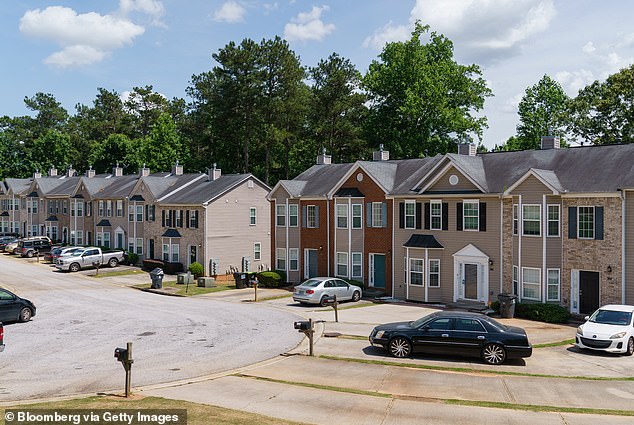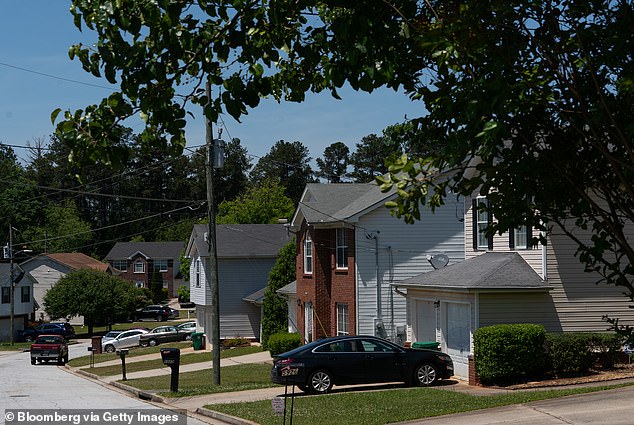Property taxes are notoriously variable by state and even county, but some local quirks can put new homeowners at a much bigger disadvantage.
One place with big discrepancies for homeowners is Muscogee County, Georgia. Here, taxes can vary depending on the year the home was purchased.
One expert pointed out how the owners of two similar homes valued at $330,000 have property tax bills that vary by thousands of dollars a year.
One family, who purchased their property in 1980, paid less than $8 in property taxes last year.
On the other hand, another one of similar value, bought five years ago, owed $3,236.
In November, Georgia residents will vote on limiting assessed property values to inflation
The big difference in bills is due to a local law passed in Muscogee County in 1982, the Associated Press reported.
The publicly voted local rule froze property values of then-primary residence homes for tax assessment purposes.
This means that those who purchased their properties in the area before that date pay property tax calculated on the value of their home at the time of purchase.
But those who bought later face taxes that steadily increase over time, as the assessed value of the home increases.
The result: Longtime homeowners pay very little, newcomers pay more and businesses face some of the highest property tax rates in the state, he said.
“Every time you grant an exemption, you create an inequity,” Suzanne Widenhouse, the county’s chief assessor, told AP.
In November, Georgia residents will have the opportunity to vote on a ballot measure that would amend the state constitution, limiting assessed property values to the rate of inflation.
If the measure is approved (to be voted on by referendum), however, it would not undo previous increases.

Georgia cities, county governments and local school boards can use a unique loophole to the new measure if it passes (file image of houses in Georgia)

Property tax collections in Georgia increased by 41 percent between 2018 and 2022 (stock image of a property in Georgia)
If approved, Georgia cities, county governments and local school boards can use a one-time loophole to opt out as early as 2025.
Property tax collections in Georgia rose 41 percent between 2018 and 2022, and total assessed values increased nearly 39 percent, AP reported.
State lawmakers told the publication that rising property tax bills are one of the most frequent concerns they hear from voters.
Senate Finance Committee Chairman Chuck Hufstetler described the proposed tax cap as “a tremendous piece of tax legislation to provide relief to taxpayers in the short term, and beyond the cap, in the long term, to keep their taxes low.”


